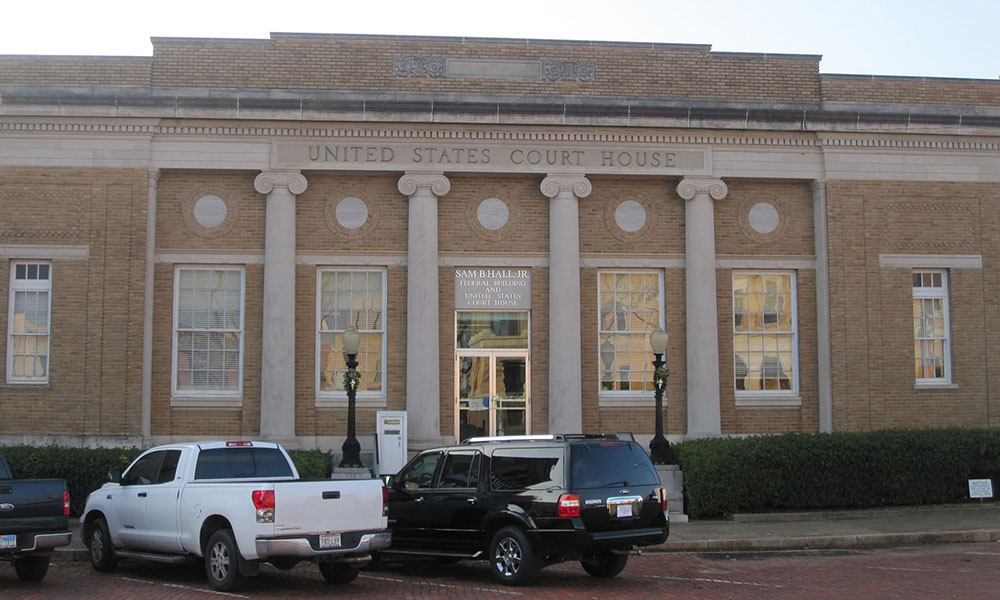
Supreme Court Ruling Halts “Forum Shopping” in Patent Suits
In a significant Supreme Court ruling that could help limit frivolous lawsuits by so-called "patent trolls," the court ruled that patent lawsuit plaintiffs must sue domestic companies in the location where they are based. Many business and tech groups support the ruling.
TC Heartland v. Kraft Foods Group Brands, a Supreme Court ruling decided Monday, has nothing to do with the Eastern District of Texas on the surface. But that federal court is where the ruling might be most acutely felt.
That’s because the unanimous decision [PDF], which reversed an appeals court ruling, effectively requires plaintiffs in patent cases to bring infringement lawsuits in districts where defendants are incorporated. (The 8-0 ruling did not include Justice Neil Gorsuch, who was not confirmed in time to hear the arguments.)
The Texas district has historically tended to favor patent holders, becoming a popular venue for patent lawsuits as a result. That has led to the rise of patent assertion entities, which are often derisively called “patent trolls.” More than 40 percent of all patent cases have traditionally been filed in the Texas district, according to The New York Times—becoming a well-known example of “forum shopping” in legal circles.
A Closely Watched Case
The ruling, which came about after Kraft Foods sued TC Heartland LLC in Delaware—despite Heartland’s headquarters being based in Indiana—was closely watched by the business world, particularly in the technology space. The Computer & Communications Industry Association, for one, praised the Supreme Court’s decision for putting a stop to something it characterized as a costly legal wrinkle.
“For too long patent trolls have relied on a combination of caseload backup, high upfront legal costs, favorable rules in courts like the Eastern District and the cost of travel to pressure defending companies to settle court cases the trolls were unlikely to win on the legal merits,” CCIA President and CEO Ed Black said in a news release.
Black added that Congress “needs to step in with comprehensive patent reform.”
ACT: The App Association called it “a significant victory for the software developers who drive the $143 billion app ecosystem, as well as patent holders across the country.” The group, which filed an amicus brief in the case, noted that patent lawsuits negatively affected its members, which are often small businesses.
Among the other groups that spoke up on the issue in amicus briefs to the Supreme Court—mostly in favor of Heartland’s petition—included the American Bar Association, the American Bankers Association, Pharmaceutical Research and Manufacturers of America, the National Association of Realtors, Public Knowledge, and the Electronic Frontier Foundation.
One critic of the ruling was the Innovation Alliance, which represents patent owners. Brian Pomper, the group’s executive director, said the ruling had the potential to hurt the United States’ place in the world as an innovator.
“This decision also comes on top of several major legislative and administrative measures adopted in recent years that have similarly weakened patent rights,” Pomper said in his statement. “Taken together, these patent system changes have made it harder for American inventors to succeed and undercut a key driver of U.S. innovation and job creation.”
The Impact Going Forward
While the ruling could effectively shake up the legal infrastructure around patent suits, it won’t prevent those suits from happening.
In a roundup of comments from the legal space gathered by IP Watchdog, many observers noted that it was likely that more patent lawsuits would move to other venues—specifically the District of Delaware and the Northern District of California, two areas where many companies are located.
Kilpatrick Townsend Partner Matthew Holohan pointed out that patent lawsuits involving foreign companies may still face forum shopping.
“The Court left unanswered the question of how its ruling impacts foreign corporations, so the Eastern District of Texas will likely remain a popular venue for suits against foreign defendants,” Holohan told IP Watchdog. “This could tee up another venue fight over foreign corporations in the near future.”
The Sam B. Hall Federal Courthouse in Marshall, Texas, has become a surprising setting for numerous patent battles. (Wikimedia Commons)






Comments